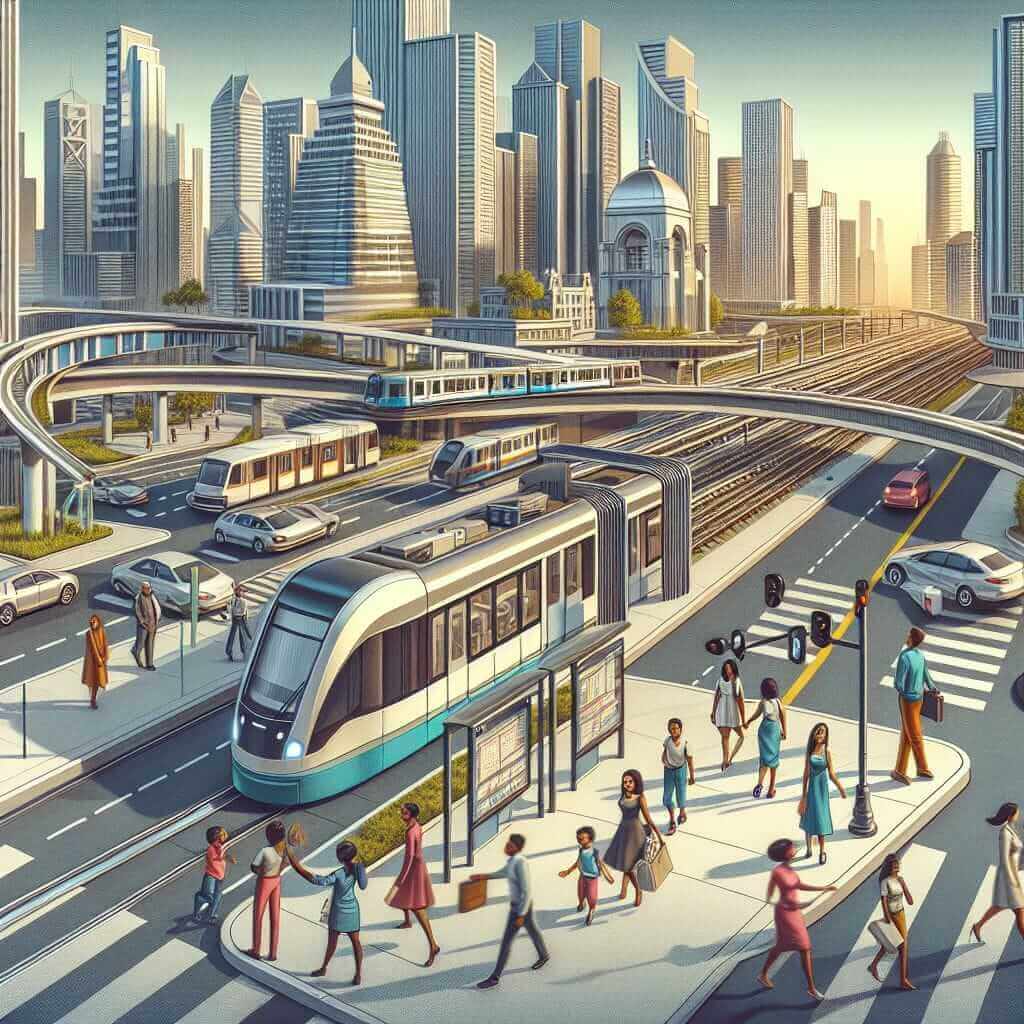The relationship between public transport and economic development is a topic frequently appearing in IELTS Writing Task 2. This essay will delve into how to effectively respond to such prompts, analyzing a sample question and providing a model answer to guide your preparation.
Here are some potential IELTS Writing Task 2 questions related to this topic:
- Some people believe that investing in public transportation is the most effective way to promote economic development, while others argue that there are better alternatives. Discuss both views and give your own opinion.
- The availability of affordable public transportation is essential for a thriving economy. To what extent do you agree or disagree?
- Many governments are investing heavily in public transportation systems. What are the economic benefits of this? Are there any drawbacks to consider?
Sample Question Analysis
Let’s analyze this question:
“Some people believe that investing in public transportation is the most effective way to promote economic development, while others argue that there are better alternatives. Discuss both views and give your own opinion.”
This is a classic “Discuss both views and give your opinion” question. You are expected to:
- Present both sides fairly: Acknowledge the arguments for investing in public transport as a primary driver of economic development and explore alternative approaches.
- State your opinion clearly: After discussing both sides, take a stance and support it with relevant examples and reasoning.
Model Essay
Investing in public transportation is often touted as a key driver of economic development, while others argue for different priorities. This essay will examine both perspectives before presenting the view that while public transport is significant, it is not the sole factor in fostering economic growth.
Proponents of prioritizing public transport investment highlight its ability to create jobs, reduce congestion, and improve accessibility. Large-scale projects like metro systems or light rail networks require significant labor, boosting employment in construction, engineering, and operation. Moreover, efficient public transport systems can alleviate traffic, saving businesses time and money by facilitating the movement of goods and people. Enhanced accessibility through public transport can connect marginalized communities to economic opportunities, fostering inclusivity.
Conversely, critics argue that channeling resources into areas like education, technology, or infrastructure like roads might yield greater economic returns. They contend that a skilled workforce equipped with cutting-edge technology can drive innovation and attract foreign investment. Similarly, investing in well-maintained roads is deemed crucial for efficient logistics and transportation of goods, particularly in regions where public transport is less feasible.
In conclusion, while a robust public transportation system is undeniably beneficial for economic development, it is not a magic bullet. A multi-pronged approach that also prioritizes education, technology, and strategic infrastructure development is more likely to create a sustainable and thriving economy. Public transport is a vital piece of the puzzle, but not the whole picture.
Word count: 272
Writing Tips
- Structure: Clearly separate the discussion of both perspectives and present your opinion with supporting arguments.
- Vocabulary: Use synonyms to avoid repetition (e.g., “promote,” “foster,” “drive”).
- Grammar: Pay close attention to subject-verb agreement and use a variety of sentence structures.
- Examples: Provide concrete examples to illustrate your points.
Vocabulary
- Touts (verb): to attempt to sell something, especially by going from place to place [taʊts]
- Accessibility (noun): the quality of being able to be reached or entered [əkˌsesəˈbɪləti]
- Marginalized (adjective): treated as insignificant or peripheral [ˈmɑːrdʒɪnəlaɪzd]
- Proponents (noun): a person who advocates a theory, proposal, or course of action [prəˈpoʊnənts]
- Alleviate (verb): make (suffering, deficiency, or a problem) less severe [əˈliːvieɪt]
Conclusion
Mastering the ability to write effectively about topics like public transportation and economic development is crucial for IELTS success. Remember to analyze the question carefully, structure your essay logically, use a range of vocabulary and grammar, and support your arguments with relevant examples.

For further practice, consider these related IELTS essay topics:
- The impact of globalization on public transportation systems.
- The role of technology in improving public transport efficiency.
- The challenges of financing and maintaining public transport infrastructure.